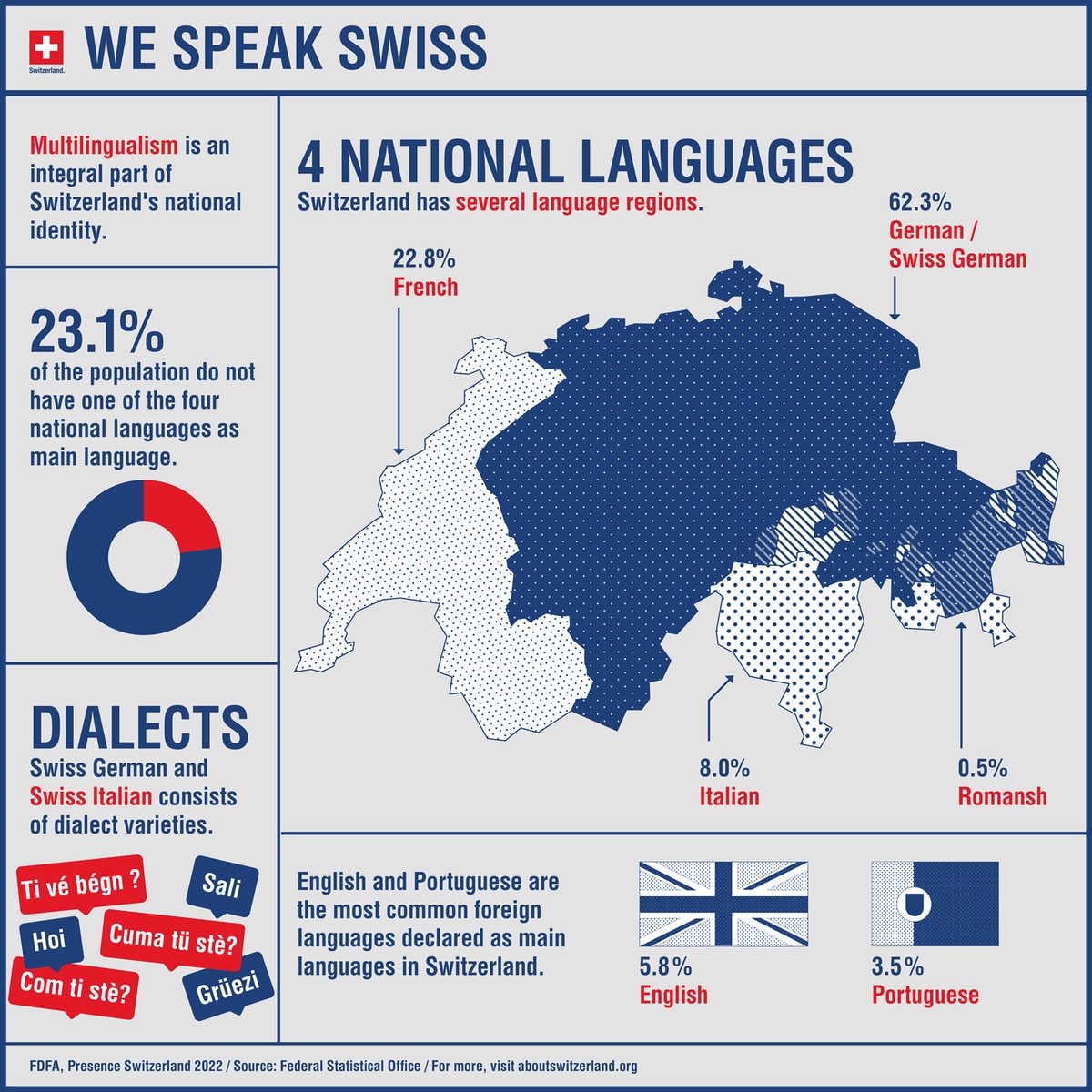Switzerland has four official national languages: German, French, Italian and Romansh. Multilingualism is a fundamental aspect of Switzerland's identity and is enshrined in law. German is the most widely spoken language in the country, and almost two thirds of the population speak more than one language at least once a week.
Language

Multilingualism, encompassing German, French, Italian, and Romansh, is a defining characteristic of Switzerland. This linguistic diversity developed through cultural connections with the bordering nations of Germany, Austria, France, and Italy. The largest language community is found in the German-speaking part of Switzerland, which is distinguished by the notable differences between the spoken Swiss German dialects and the written form, standard German.
The large foreign population in Switzerland and the country's international ties further enhance its linguistic diversity. Over the past few decades, the linguistic composition of the country has changed: apart from French, the proportion of people speaking the national languages has decreased, while the number of those speaking non-national languages has increased. English, in particular, has gained increasing significance in general day-to-day business and as a bridge connecting the national languages.
Facts and figures on languages in Switzerland
- German is the primary language for more than 60% of the population, although in practice, Swiss German, a collection of Alemannic dialects, is the predominant spoken form.
- French is the main language in the French-speaking region of Switzerland, known as Romandie in French.
- Italian is the main language in Ticino and some parts of the canton of Graubünden.
- Romansh, a Rhaeto-Romanic language with Latin origins, is spoken in some parts of the canton of Graubünden.
- Four cantons (Bern, Fribourg, Valais, and Graubünden) and the city of Biel/Bienne are officially multilingual.
- Swiss German is the most commonly used language in the workplace, followed by standard German, French, English and Italian.
- Over two-thirds of the population aged 15 and above regularly speak more than one language.
- Foreign nationals living in Switzerland also contribute to the country's linguistic diversity, with English, Portuguese and Albanian being the most frequently spoken non-national languages..
- Other commonly spoken languages in Switzerland include Spanish, Serbian and Croatian, primarily among members of those respective immigrant communities.
- Multilingualism is not only an integral part of Swiss identity but is also enshrined in the Languages Act.

